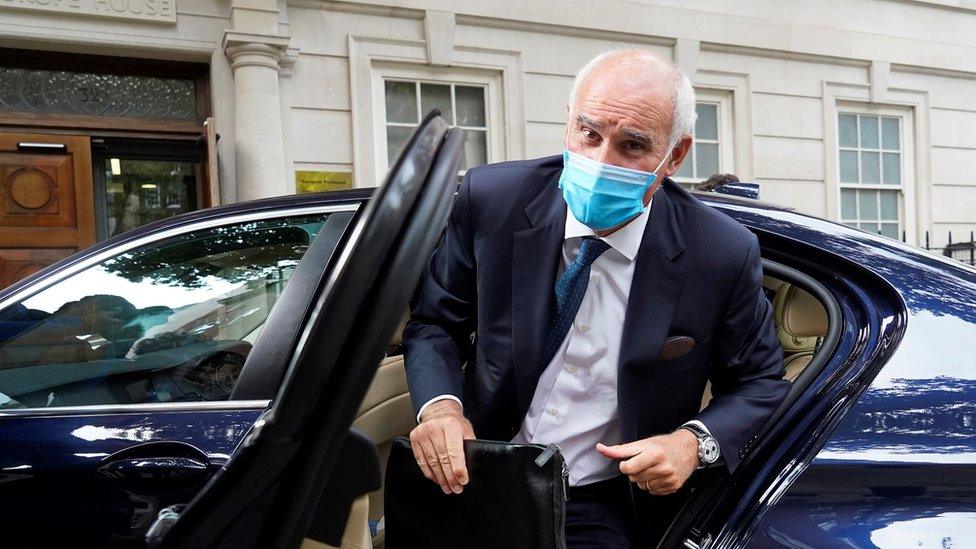Brexit: UK gives EU ambassador full diplomatic status
- Published

Joao Vale de Almeida is the EU's ambassador to the UK
The UK government has agreed to give the European Union ambassador in London full diplomatic status.
The Foreign Office had resisted the idea, arguing the EU should not be treated like an independent nation.
But in a joint statement, the UK and EU announced ambassador Joao Vale de Almeida, would get "a status consistent with heads of missions of states".
He will now be immune from detention, prosecution or taxation during his time in London.
These are among the privileges given to diplomats in the states where they are stationed, as sanctioned by the Vienna Convention.
In more than 100 other countries, the EU's ambassadors have the same status as those representing sovereign nations.
Until now, however, the UK government had said it wanted instead to treat the EU's London delegation in London as representatives of an international organisation.
But the EU complained that this was inappropriate and could damage relations, while critics accused ministers of wanting to punish Brussels in the aftermath of protracted Brexit negotiations.
'Goodwill and pragmatism'
Foreign Secretary Dominic Raab and EU Vice-President Josep Borrell met on Wednesday at the margins of the G7 meeting, taking place in London, to try to resolve the dispute.
They later issued a joint statement saying they had "reached an agreement together, based on goodwill and pragmatism".
They said EU delegation staff in London would "have the privileges and immunities needed to function effectively, while allowing for effective administration of justice", adding that they looked forward to "moving ahead and tackling global challenges together".
Mr Raab and Mr Borrell also discussed joint work on climate change, ahead of the Glasgow COP26 climate summit, set to take place this autumn.
The G7 group - the world's seven largest so-called advanced economies - is made up of the UK, Canada, France, Germany, Italy, Japan and the US - with the EU representatives in attendance.
This week's talks were the first face-to-face meetings the G7 member states have had in more than two years because of the pandemic.